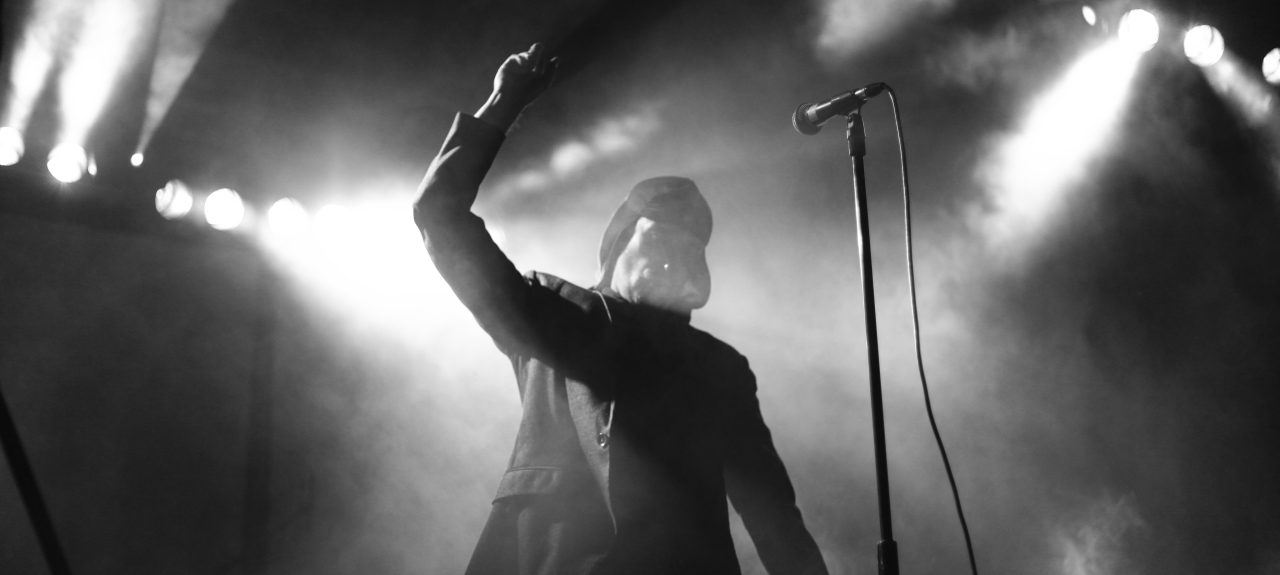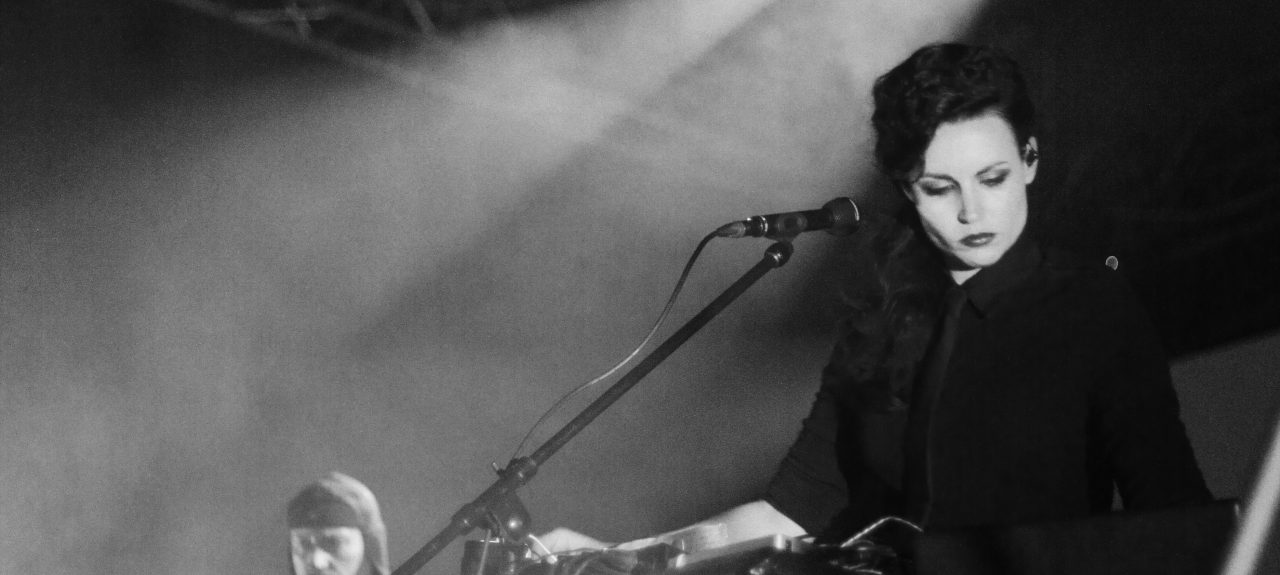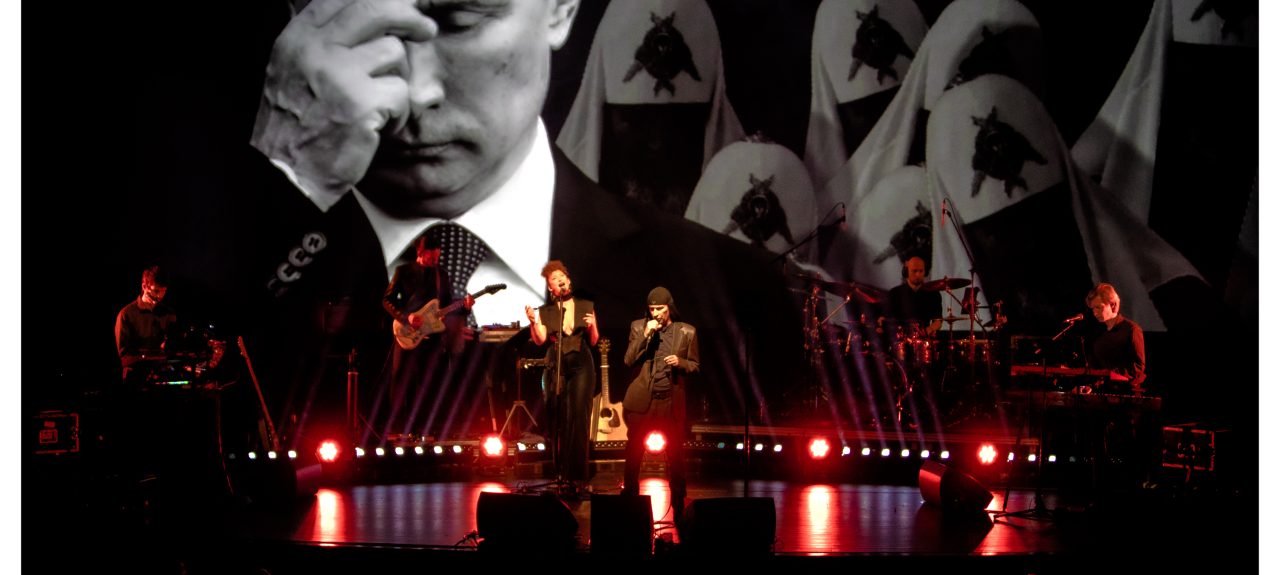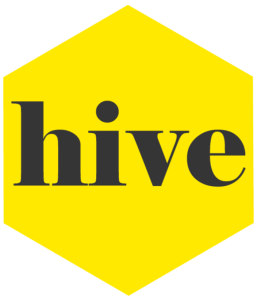In 1987, the winner of the poster competition for the annual Yugoslav Relay of Youth, turned out, to the great dismay of the authorities, to be a slightly modified piece of Nazi propaganda. The Neue Slowenische Kunst (NSK) art collective, co-founded by the multimedia group Laibach, was responsible. In adapting imagery from 1930s Germany to the context of 1980s Yugoslavia, NSK sought to poke fun at the cult of personality that surrounded Josip Broz Tito.
Laibach was formed in the Slovenian mining town of Trbovlje in 1980 and evolved into a significant satirical force in the Balkans and beyond in the subsequent decades. The moniker “Laibach,” the German name for Ljubljana, Slovenia’s capital, references the Axis occupation of Slovenia in World War II.
Laibach’s early shows were deliberate provocations against the grip of the Yugoslav state, from contentious iconography to using smoke bombs at their shows instead of dry ice machines. The group quickly gained notoriety for their intentionally enigmatic embrace of totalitarian martial imagery on stage, industrial marches and speeches.
The unclear ideological underpinnings of these early antics, combined with their military attire, has led some to accuse Laibach of being at extreme ends of the political spectrum or neo-nationalists. In 1993, prominent Slovenian philosopher Slavoj Žižek defended Laibach against these accusations, writing that the group challenged “the system (the ruling ideology) precisely insofar as it is not its ironic imitation, but overidentification with it.” Laibach offered a characteristically sardonic response to these accusations, stating “We are fascists as much as Hitler was an artist.”
In 1983 Laibach appeared on Yugoslav TV wearing military outfits and armbands, perhaps as a further attempt to further blur fascist and socialist imagery. This led to them being banned from public appearances and effectively labeled as dissidents. Unfazed, yet unable to perform in Slovenia, they embarked on The Occupied Europe Tour ’83, playing 16 cities in eight countries across the continent. In 1984, they briefly moved to the U.K., where they worked as laborers in London and appeared as extras in Stanley Kubrick’s “Full Metal Jacket.”
One of their defining traits lies in their reinterpretation of songs and covers, often subverting them to convey a different message. For example, their 1994 album “NATO” contains covers of “Dogs of War” by Pink Floyd and Europe’s “The Final Countdown.” Laibach released the album in the midst of multiple wars in the former Yugoslavia, noting that it was taking NATO “where NATO itself has refused to go.” Through their reappropriation of songs, Laibach prompts listeners to find political undertones in otherwise saccharine, frivolous lyrics. Even the most innocuous songs become rallying, if ambiguous, calls for dissent.
More recently, their eerie “The Sound of Music” cover album repurposed seemingly innocent songs from the popular musical in preparation for a concert in Pyongyang, North Korea. Laibach’s 2015 visit made them one of the first western bands to perform in North Korea, and they released a documentary of the trip directed by Norwegian filmmaker Morten Traavik. At this concert, a very select group of attendees became the first North Koreans allowed to listen to government-sanctioned Slovenian industrial pop music.
K2.0 caught up with Laibach over email to discuss the band’s 2012 show in Kosovo, hybrid warfare and how Newton’s Third Law explains the breakup of Yugoslavia.

Laibach’s 2012 show in the Palace of Youth and Sports in Prishtina is the group's only concert in Kosovo to date. Photo Credit: Blerta Kambo
K2.0: Laibach performed their only show to date in Kosovo in 2012 at the Palace of Youth and Sports in Prishtina. How does Laibach perceive Kosovo in the context of the former Yugoslavia? Or Kosovo’s place in the broader narrative of Yugoslav history?
Laibach: Unfortunately, we only played in Kosovo once, but we have very fond memories of that concert. We would love to come back again as soon as possible.
For us, Kosovo was first and foremost an “unknown” part of the common state, where it was probably better to communicate in English than in Serbo-Croatian. The Albanian language was completely foreign to us anyway, at least until we went to serve in the Yugoslav army where we finally had a chance to make friends with the guys from Kosovo as well.
In the context of the former Yugoslavia, Kosovo was seen as a kind of stitching point, where the idea of Yugoslavia as a common, multicultural, multinational and tolerant state of Brotherhood and Unity was either going to stand or fall apart. The latter happened because, according to the laws of quantum mechanics and the Pauli exclusion principle, two bodies cannot occupy the same space at the same time. As a result of this simple physical fact, Newton’s Third Law [every action has an equal and opposite reaction] started to happen in Kosovo, and Yugoslavia was soon over. The omnipresent and much advertised formula of Brotherhood and Unity was dissolved and nothing but hatred and disintegration was left of it.
Laibach belonged to the NSK art collective, which was formed in 1984. Has membership in an art collective empowered Laibach’s expression?
NSK was indeed founded in 1984, as a result of the fact that Laibach was formally banned at that time. Therefore, we decided to expand the group’s activities through other groups and collaborators that wanted to work with us. That’s how Neue Slowenische Kunst was born. It was more an organized movement of like — or similar — minded people. As such, it lasted approximately until 1992, when we all decided to transform NSK into an even broader international platform of cooperation, which we reformulated as the State.
Over the years, the NSK State has indeed become a kind of open platform for all its citizens around the world, who in a sense also now manage it. Laibach is no longer actively involved in the State itself, and Neue Slowenische Kunst has also concluded its part long ago and exists now only through memory. As said, the NSK was built around Laibach and was not essential to Laibach itself, but Laibach was very much essential to the NSK.

Laibach’s covers of previously innocuous songs challenge their conventional meanings. Photo Credit: Blerta Kambo
Do art collectives have a place in an increasingly alienating modern world?
Although society today is highly alienated and fragmented, individuality is only an illusory idea. Collective consciousness is more dominant than ever and acting outside the collective is practically impossible. The same is also true in the art world, where the individual artist is essentially cared for and surrounded by a smaller or larger collective of people who support him, in one way or another, to present his ideas. Today, even one person has to act as multiple personalities to exist and compete in society. That’s why art collectives certainly have a place in an increasingly alienated modern world. More and more so!
Kosovo was seen as a kind of stitching point, where the idea of Yugoslavia as a common, multicultural, multinational and tolerant state was either going to stand or fall apart.
You mentioned the establishment of the NSK state in 1992, a year after Slovenia’s declaration of independence. NSK identifies itself as a “State in Time,” and rejects traditional notions of statehood based on territory or borders. Žižek has dubbed it a “stateless state.” What’s happening with the NSK state these days?
We cannot really answer this question, because in 1992 we granted the NSK State autonomy and independence, and it is now generally fully in the hands of its citizens. In principle it really is a “stateless state” as defined by Žižek. The question is also whether it is a “State in Time” at all — or is it maybe already out of Time. We co-founded it in 1992 and in embryonic form even 10 years earlier, simply as “The State.” But today it has a life of its own, and we can’t tell you much about it.
Does the NSK state recognize Kosovo?
Of course; NSK is Kosovo as much as Kosovo is NSK!
There was a lot of support in Slovenia for Kosovo in the 1980s, with examples such as the assembly at Cankarjev dom in Ljubljana on February 27, 1989, held in support of the striking miners in Trepča, in northern Kosovo. What are Laibach’s memories of this time?
We remember these events well and support for the Kosovo miners was of course a bright spot in the Slovenian political scene at the time. Nevertheless, it is necessary to take a broader view of what was then going on as a whole. Such a view reveals that Slovenia only took advantage of the tense situation in Kosovo, in order to be able, first and foremost, to build its own political agenda and to break away from Yugoslavia. Fair enough, still!
Do you think Laibach’s use of 20th century military imagery is outdated in modern times, given contemporary hybrid and cyber warfare?
Hybrid and cyber warfare may indeed be fought today in civilian outfits, but the logic of this warfare is utterly militant. Paradoxically, Laibach does not use military uniforms at all, or has not done so since 1985. The even greater paradox is that the very term “uniform” can be interpreted as an abbreviation for “universal form,” and is therefore by definition embedded in the universal content of modern times.

Laibach plans to release 10 albums and perform 200 shows in the coming years. Photo Credit: Blerta Kambo
What relevance does the 1941-1945 German occupation of Slovenia have in 2024?
During this period, Slovenia was occupied not only by Germany, but also by Italy and Hungary. In addition, it was attacked by its own collaborationist paramilitary formations, such as the White Guard, the Blue Guard, the Black Hand, the Slovenian Legion and the like. Due to its exceptional geographical position, Slovenian territory has always been of strategic interest to the Italians, Austrians, Germans and Hungarians.
Hybrid and cyber warfare may indeed be fought today in civilian outfits, but the logic of this warfare is utterly militant.
The German occupation of Slovenia during the Second World War was certainly not welcomed by the majority of the population, because the German army was trying to re-establish Germanic cultural domination of “Ordnung and Disziplin,” which the Slovenes had already in principle rejected when they fled the Austro-Hungarian monarchy. Of course, there are a number of Slovenes today who are heavily pro-German oriented, but they are still outnumbered by those who are closer to the Slavic identity and who chose to become part of the South Slavic federation, especially because of a terrible experience in both world wars.
In a certain way, the German occupation during World War II at most helped Slovenians find their own political and cultural identity. But today Germany is of course still Slovenia’s most important economic partner nevertheless. And Slovenians can still be better Germans than Germans are — if they decide so.
Can you expand on that last part?
This means Slovenians can be more German than Germans … bigger Germans than Germans … more Pope than the Pope itself…
What do you make of the contemporary rise in Yugonostalgia?
We get nostalgic ourselves. In the political and economic chaos of the current times, such nostalgia is soothing and to some extent understandable. In the former Yugoslavia, we had nominal democracy, self-management, non-alignment and so on, but we didn’t like that, because we had to go at least as far as Trieste to get jeans and similar western goods. After the disintegration of Yugoslavia into several miniature states created on its territory, an official democracy arrived, a democracy of a market economy that should satisfy all the basic and above-standard needs of its believers, if they only successfully over-identify with it. Whether it really brought a happier life to the peoples of these countries is a question that requires special consideration.
In the political sense, all these countries are now completely insignificant pashaluks [territories governed by an Ottoman pasha] without a specific weight and commitment. Political, as well as economic decisions are actually made in some third countries and through bureaucratic alliances. The independence of Slovenia, for example, was to some extent a collective, national heroic act. But that heroism was soon lost in concrete economic and political problems, which have no end in sight. And in the meantime the country was practically left without its own significant property of any kind.
In the economic sense Yugoslavia may not really have really meant much, but in international relations, it was a real political giant. This is why we understand the phenomenon of Yugonostalgia. In every aspect we are cheering for more political wisdom and connection between peoples and states, which were created in the territory of the former common country, because more things unite us than separate us and it is a real shame that after the breakup there were a multitude of wars and that tensions of mutual hatreds still exist. Of course, it is also clear to us that the Albanians in Kosovo had a much more difficult and problematic relationship with Yugoslavia, so their intolerance of such and similar nostalgic ideas is quite understandable.
If nothing else, we should learn from history that we learn nothing from it.
Do you see any danger in looking back at the past, such as the tendency to weaponize nostalgia? What lessons, if any, can be learnt from history?
Why should looking at history in itself be in any way dangerous and problematic? We can only learn from history and from the past, certainly not from the future which has not yet arrived. If nothing else, we should learn from history that we learn nothing from it. But still, those who ignore it are — as we know — doomed to repeat it. History can always be distorted and exploited for all kinds of interests, and weaponizing nostalgia is certainly one of a kind. This is unfortunately happening right now in Ukraine, but also in Israel and Gaza. But this is not the fault of looking back at the past, but of a distorted interpretation of it.

Laibach’s concert in Ludwigshafen, Germany in 2022 featured a large image of Vladimir Putin. Photo Credit: Ulf Jacob
In February 2023, Laibach faced some controversy surrounding a planned show in Kyiv after referring to the war in Ukraine as “a cynical proxy war for the geostrategic interests of the superpowers and financial capital.” Do you stand by this statement?
We have no reason to change our position on the war in Ukraine; it is still a conflict that has much deeper geostrategic roots than what is visible on the surface. It is at the very least a war between America and Russia, if not a prelude to a war between America and China. The Ukrainian nation is, of course, the biggest victim of this war, which is radically changing the economic and political picture of the world and weakening the power of the European Union.
Of course, we regret that the concert did not take place, considering that the Ukrainians themselves invited us and that we performed there several times before the war. But, we understand their arguments, even though we may not agree with them. However, we hope that we will still perform in Ukraine in the near future and that they will win their war.
How can, or should, artists engage with war?
There are many ways in which artists can engage in war, but the one closest to Laibach is probably [Charlie] Chaplin’s way, as depicted in “The Great Dictator.” Even Hitler could not resist watching this film; supposedly he saw it several times.
In the documentary “Liberation Day,” which follows Laibach’s concert in North Korea, founding member Ivan Novak says “We are censoring ourselves constantly … we are our own North Korea.” Can you expand on this? Which aspects of modern life, if any, are free from totalitarianism?
Totalitarianism today is all-encompassing, having infiltrated every pore of society, every aspect of modern life. The concepts that give us the greatest sense of freedom such as cars, mobile communicators, drugs, consumerism and democracy, are precisely the ideas that enslave us most. The totalitarian structure of modern times is most accurately portrayed by the American director John Carpenter in his film “They Live,” and there’s nothing to add to that.
We are nobody’s and everybody’s and yes, we are certainly not a Balkan band.
Does the perception of Slovenia as situated on the cusp of “Europe” and the Balkans give Laibach a unique perspective? In light of this liminal position, do you consider Laibach to be a Balkan band?
We do not deny that Slovenia’s special geopolitical position may give us a unique perspective, but we do not consider ourselves a Slovenian group at all. When we did our first tour in Western Europe in 1983, we were labeled as an Eastern European band from the Balkans. When we performed in Pyongyang in 2015, we were presented by the Western media as the first “Western” band performing in North Korea. In America, we are seen as Germans or Russians, or at best Europeans. The Serbs disdainfully push us into Austria and Germany. Italians believe that Slovenia is based in Iceland. The Poles think of us as their own.
In short, we are nobody’s and everybody’s and yes, we are certainly not a Balkan band. But when we performed in Sarajevo in 1995, during the war in Bosnia, Slavoj Žižek said somewhere in French that we are the “Balcon” [balcony] of Europe.
What’s next for Laibach?
What’s not! In the next three years, we are planning to release around 10 different albums and execute 200 shows — and then we’ll see what to do next…
This article has been edited for length and clarity. The conversation was conducted in English.
Editor’s Note (April 18, 2024): The original version of this story used a Laibach quote from a different publication, hyperlinking that story. After our story was published, Laibach informed us that the quote from the other publication was incorrect. We have since updated this piece with what Laibach says is the correct quote.
Additionally, the original story said Laibach founded NSK. Laibach was not the only founder. As such, the piece has been updated to say that Laibach co-founded NSK.
Feature Image: Jørund F. Pedersen
 Want to support our journalism? Become a member of HIVE or consider making a donation. Learn more here.
Want to support our journalism? Become a member of HIVE or consider making a donation. Learn more here.






totally new subject for me, and a reminder. Thankyou
Great questions. Learned a lot. Really appreciated the Editor's Note to clarify some minor corrections. This gesture speaks positively to your credibility and is the kind of thing that builds trust.